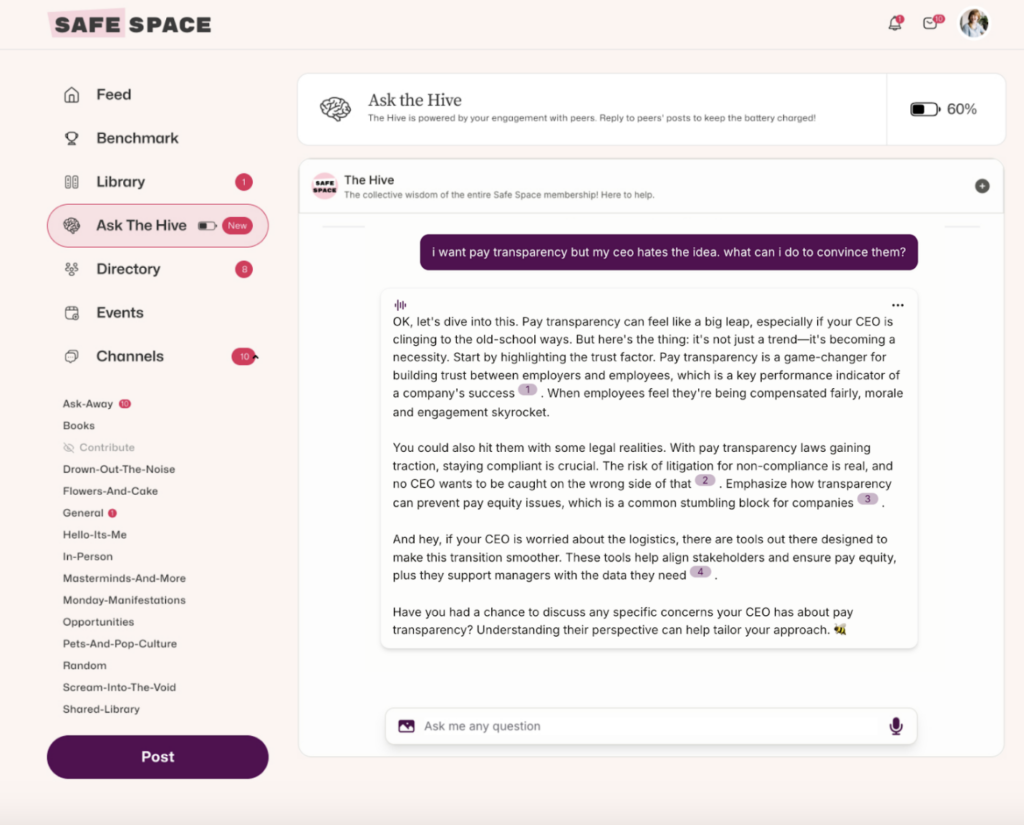
✍🏽 What’s the best way to tell my supervisor that I’m burnt out from straddling two and a half positions? I’m all for being a team player but I feel like I’m the only team player being spread so thin.
Context: Small consulting firm (less than 15 people), focus on nonprofit technology use and operations. I’m currently straddling 2.5 positions, the business manager role that I was supposed to have transitioned out of 6 months ago, a consultant role and a project manager role.
📣 Jennifer Pokorny, Head of Operations/HR/Finance @ Rock Paper Simple
While I am not sure of the relationship you have with your supervisor, I’m going to express how I would handle it with mine. My supervisor and I are very open and honest with each other though so I’m very comfortable talking to them about anything.
We run on EOS, and there is a tool called Delegate and Elevate. Essentially it’s 4 quadrants and you sort your duties/tasks into them based on what you love, like, are good at and not good at. What I’ve done in the past is I’ve filled this out with all of the roles I am sitting in and color coordinated them to see what role I have the most duties/tasks for and which tasks are draining for me (the ones in the not good at/don’t like section). With that information I then consider who I would delegate those duties/tasks to or who would be better suited for them.
Finally, I take my chart to my supervisor and review the things I’m spending most of my time on and the things I should be spending my time on as well as my proposed solution. The solution can be team member x could maybe take this on temporarily (if hiring isn’t an option), or the solution is “the duties/tasks for business manager are draining me, is there a plan to get me out of this seat”.
TLDR; go into the conversation with data of all the things you are doing, what takes up your time vs what should be taking your time, and some kind of a solution to get it off your plate.

✍🏽 How do you sort out nepotism in a family-owned business to ensure that the right people are being promoted, recognized, and hired by their knowledge, skills, and abilities?
Context: Family-owned company of 90 where 40% of employees are related or connected in some way.
📣 Cheyenne Hunter, Firm Administrator @ Bush Rudnicki Shelton:
If nepotism is an unavoidable part of your business (and it sounds like it is), I think it’s absolutely crucial to establish:
- Clear and objective job descriptions and requirements for new hires
- Policies and processes for performance management and disciplinary actions
- Set metrics and criteria for promotion and advancement
Bonus points if all of this is extremely transparent, but that could also come back to bite you if the higher ups don’t follow the rules themselves…
If possible, it would also be good to try and have family members/spouses/etc. on different teams or at least reporting to managers that they have no personal connection to.
Of course, getting the owners to commit to treating everyone the same may be a different challenge… and even if you do everything right, you’re still likely going to run into “favoritism” complaints from the other 60% of your employees and ongoing morale issues. The owners need to be aware of the liability (and HR headaches) that could come their way if they don’t treat all employees equitably and then one of the 60% gets terminated and starts to point fingers. Having clear and established policies and processes that are enforced across the board is your best bet in this scenario.


